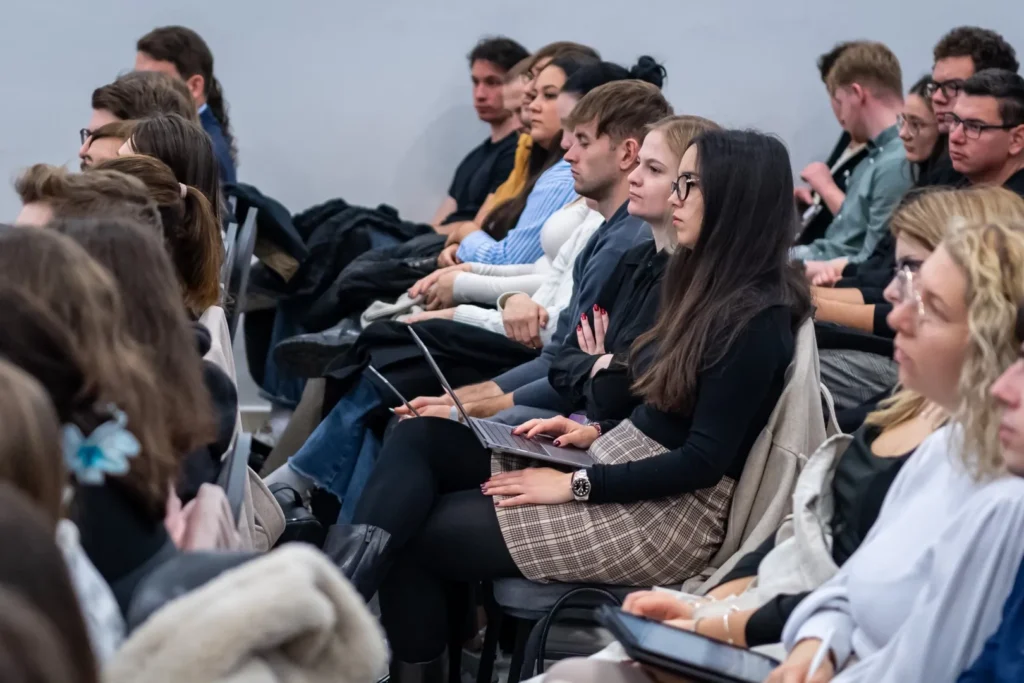Created: 2025.11.17. 12:21
Artificial intelligence, online court platforms and automated legal procedures are fundamentally reshaping the legal professions of lawyers and judges – these were the topics focused on by the international conference recently held by the Deák Ferenc Faculty of Law and Political Sciences at Széchenyi István University. At the event, Hungarian and foreign experts, lecturers and practising lawyers discussed how technological developments are transforming the perception of the legal role and everyday professional practice.
The Deák Ferenc Faculty of Law and Political Sciences at Széchenyi István University recently organised a three-day conference titled „The Impact of Digitalisation on Legal Professions”, organized by the Law and Rule of Law Research Group and Professor Dr Mátyás Bencze. This year, with the support of the National Media and Infocommunications Authority and in partnership with the Hungarian Bar Association, the research group conducted a questionnaire-based survey among Hungarian lawyers regarding how they integrate new digital technologies into their daily activities and what changes this has brought to their professional practice. The results obtained provided an opportunity for the participants to discuss the interconnectedness of the topic.
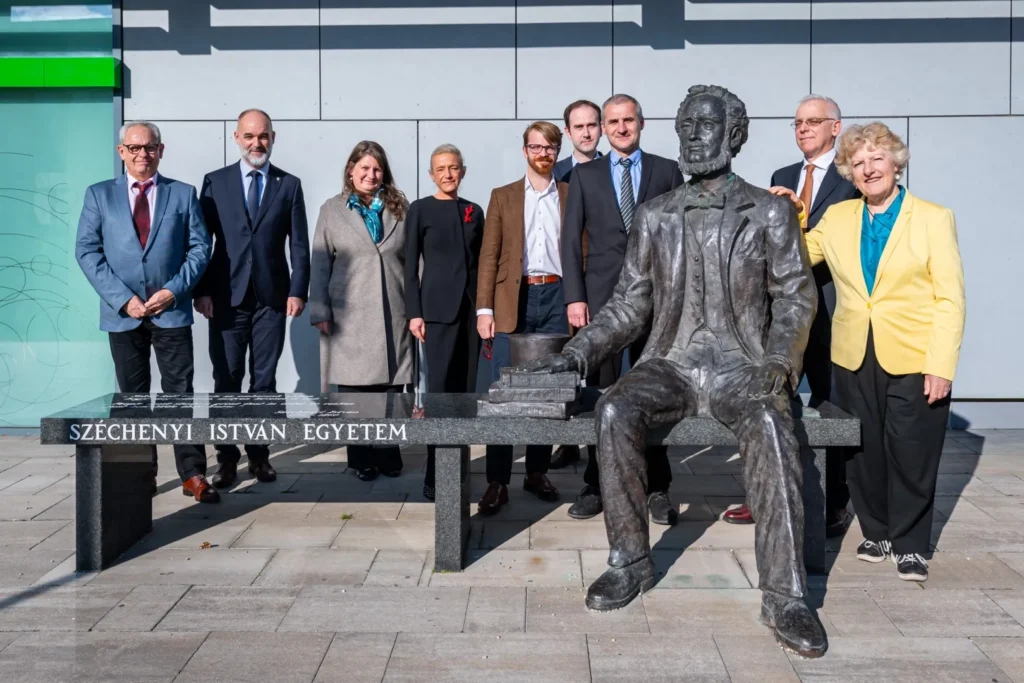
The programme was opened by Professor Dr Petra Aczél, Head of the institution’s Future Management Zone, who drew attention to the fact that digitalisation is not merely about the appearance of new tools but about a fundamental change in perspective. „We live in an era where artificial intelligence is fundamentally rewriting the meaning of professions. In this great transformation, we are simultaneously losing our familiar certainties and opening up new possibilities. Széchenyi István University is a knowledge centre where the meeting of different scientific fields not only allows us to react to changes but also enables us to shape them,” she emphasised.
Dr Péter Smuk, Dean of the Faculty, highlighted that the future of legal professions is determined by the harmonisation of technological progress and professionalism. „Digitalisation is a great opportunity, but also a serious responsibility. The mission of our Faculty is to pass on the enduring values of the legal profession while preparing our students for the challenges of a rapidly changing technological environment. Artificial intelligence and legal technologies can support professional work, but human judgment must remain behind the decisions,” he stated.
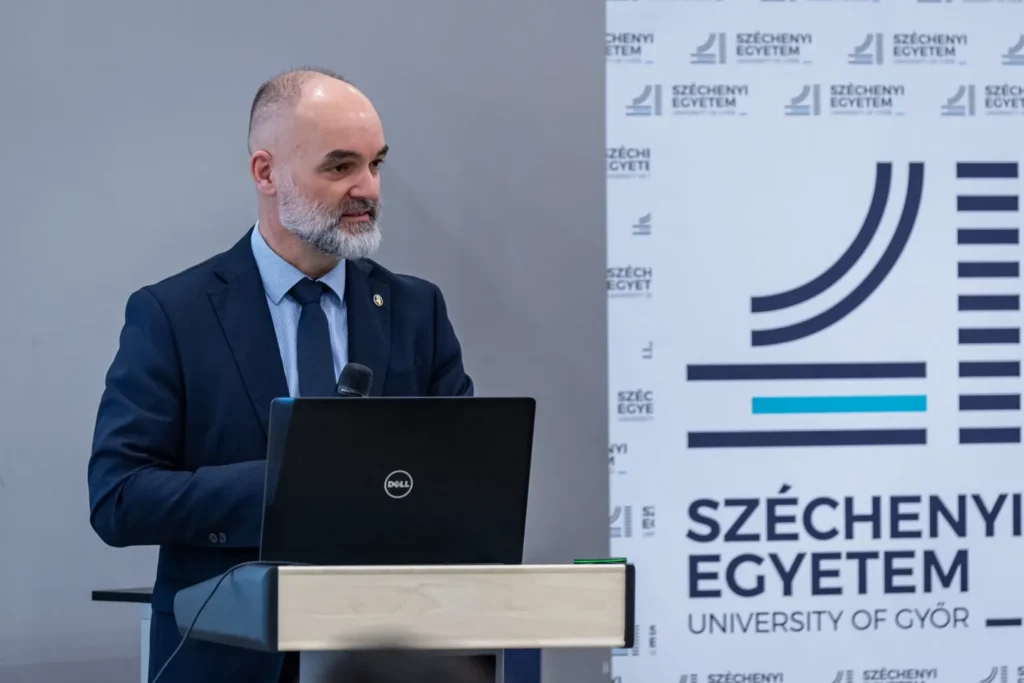
One of the keynote speakers at the event was Dr Dory Reiling, former judge of the Amsterdam District Court and an expert in the World Bank’s judicial digital reform programme, who spoke about the conditions for the safe and responsible application of artificial intelligence. She pointed out that technological systems only serve justice if their operation remains transparent, balanced and under human control.
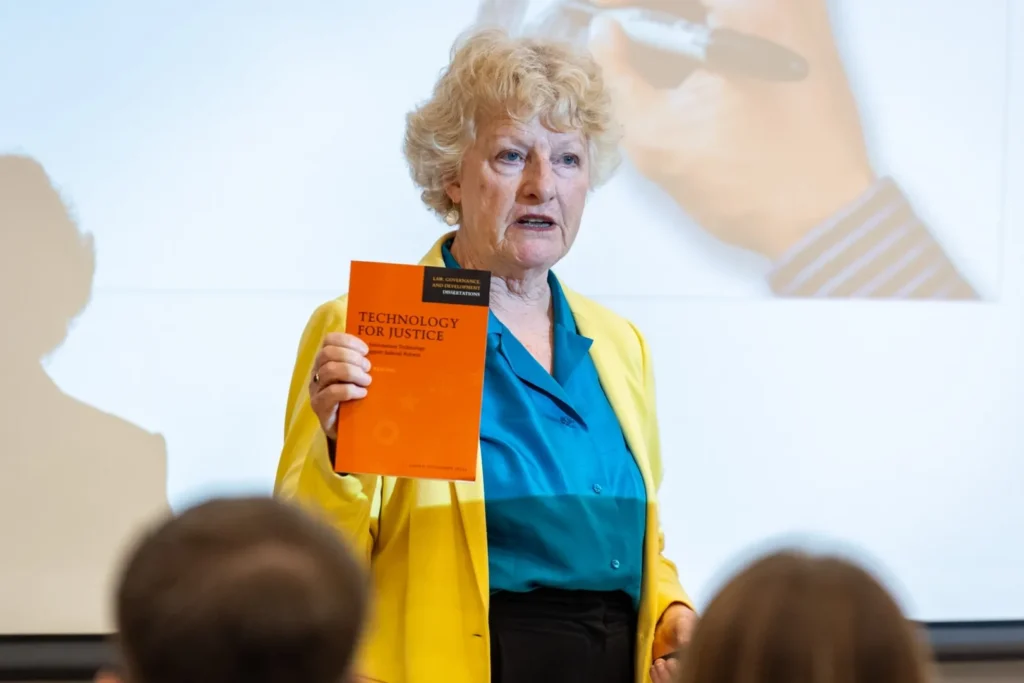
The other international keynote presentation was given by Dr Francesco Contini, a researcher at the Institute of Legal Informatics of the Italian National Research Council. In his presentation, he used the examples of Italy and Brazil to show how artificial intelligence can simultaneously become a tool to support judicial efficiency and a risk to judicial independence. He stressed that the „taming” of digitalisation is an institutional matter, and only systems that ensure the autonomy of the justice system can be sustained.
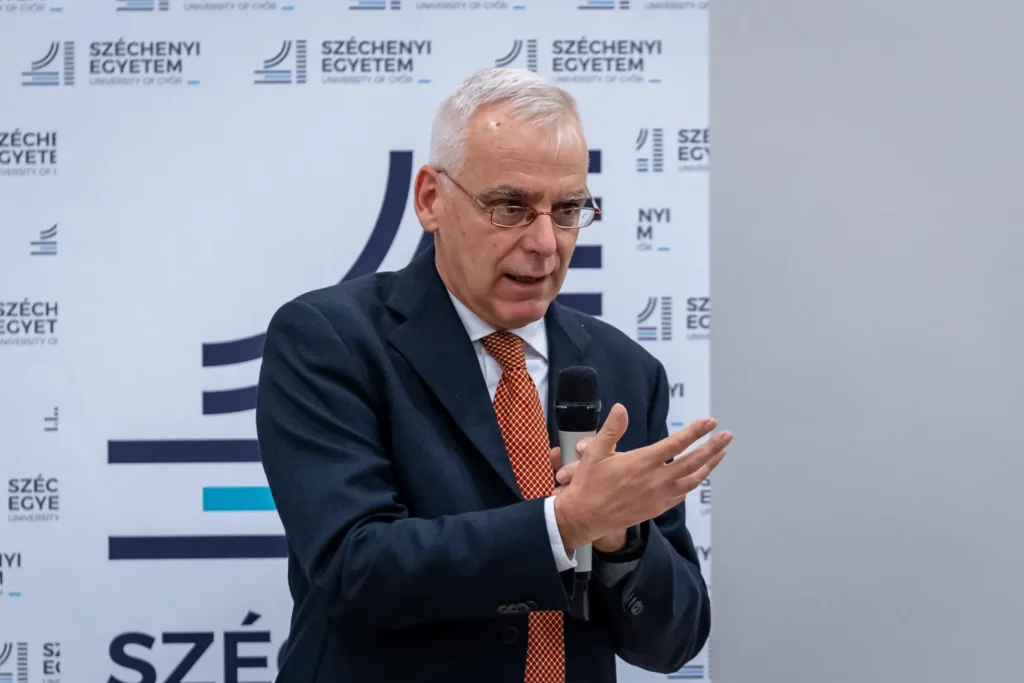
The Hungarian keynote speakers at the conference drew attention to the current experiences and dilemmas of Hungarian legal practice. Dr Péter Tóth spoke about the transformation of legal technology and corporate legal work, demonstrating how the digital environment forces lawyers and legal counsels to renew their mindset and service models. Dr Zsolt Ződi analysed the applicability and limitations of artificial intelligence – especially chatbots – in legal work, highlighting that technological solutions can only represent progress where the human aspect of legal decision-making can be preserved.
